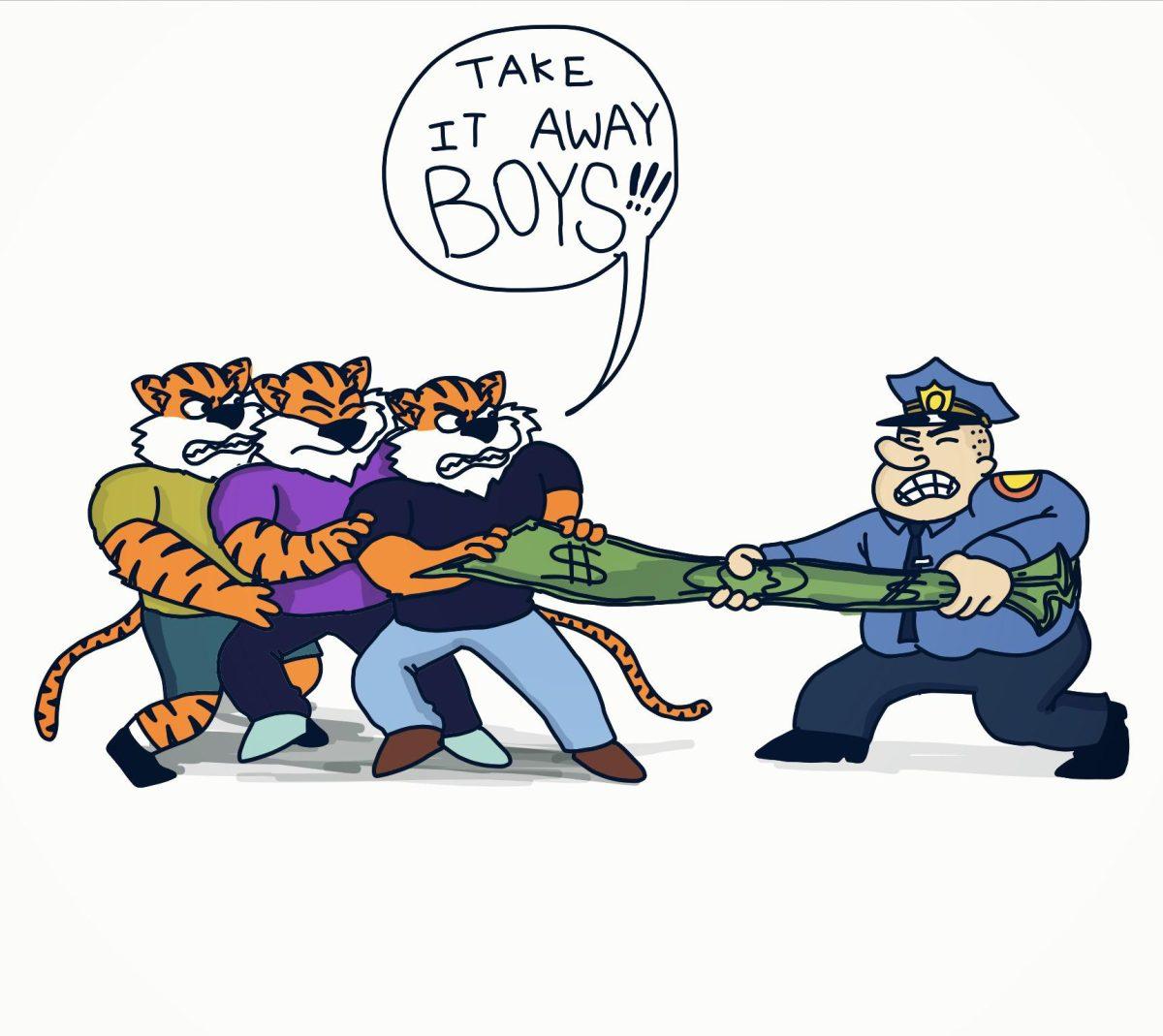In the past few months, you’ve likely heard the term “defund the police.” But what does it mean, exactly?
Simply put, it’s a political stance intended to not only reducpolice violence and misconduct but fundamentally reassess the role of the police in America.
I’m not arguing for purging police departments of their resources completely, but rather reducing and redirecting the excess funds to other, underfunded public institutions.
It’s common knowledge that police in the U.S. have a race problem. An institution borne from slave patrols is bound to have skeletons in the closet.
Police violence is a public health crisis specifically for our marginalized populations. According to statistics, one in every 1,000 Black men can expect to be killed at the hands of an officer. To put that in perspective, the University currently enrolls 1,869 Black male students, myself included.
Surely diverting more money towards the murderers and their enablers will not bring justice to their victims, nor supply any confidence to the public that conditions will change.
The epidemic of systemic racism in law enforcement cannot and will not be healed by sensitivity training. Officers, like civilians, seek out and create political enclaves at their whim — and, disturbingly, American police culture seemingly tends toward white supremacist movements.
Proponents of heavy policing may squawk at the idea of a social worker or civilian, rather than a policeman, subduing a “crackhead.” However, calling in armed officers is generally not the ideal response to someone having a medical emergency — involving police in such conflicts means introducing lethal weapons to a situation that doesn’t warrant it.
People with disabilities, struggling with addiction and experiencing mental crises make up between one-third and one-half of total police killings. Keep in mind police in the U.S. commit almost 10% of annual homicides.
And what about body cameras? Well, they serve two purposes: 1) to encourage officers to follow procedure on the scene and 2) to allow possible misconduct to be properly investigated after the fact. Simply strapping a camera onto an officer may ease public concerns regarding transparency, but it does little to address the real problem.
Besides, the system’s efficacy is reliant on narrow margins; when an officer chooses to activate the camera, whether the footage is reviewed internally and whether the footage is actually released to the public.
The common takeaways from reviewing body camera footage seem to be minor penalties and further calls for harm reduction — kicking the can down the road, essentially
If police departments across the country consistently face charges of misconduct, why must we unquestioningly give them our tax dollars? Any federal, state or local agency that regularly abuses its constituents is likely not effective, or even necessary.
Police are taught to approach an unrealistic variety of situations with one key notion in mind: in certain instances, they are permitted to use lethal force. Certainly, not every officer is itching to shoot — but every officer is promised impunity in the form of qualified immunity, functionally shielding them from any legal scrutiny in the event that they do.
Sensitivity training is a police-driven solution to a problem they themselves exacerbate. Teaching officers to respect differences and avoid microaggressions will not prevent a dirty cop from planting drugs, undo a lifetime of implicit biases nor remove the firearm from their grasp.
We fundamentally want to preserve our communities, but our over-reliance on policing means funneling countless individuals and resources into our prejudiced and convoluted criminal justice system.
Prioritizing punishment over rehabilitation has incarcerated entire generations of Americans, reduced their livelihoods to slave labor and redirected our limited community funds toward state violence.
We tolerate police violence in the name of “preserving the peace” against the vague criminal threat. Yet truthfully, crime is not random or unpredictable but resultant of combined sociopolitical failures, spurred on by inefficient and complicit policing.
Defunding the police and redirecting our community resources and tax revenue into public healthcare, mental health and addiction services and other vocations is a practical method of social reform.
Consider reframing criminality, poverty and even violence as symptoms of economic turmoil and public health concerns. Through defunding the police, we can attempt to reform a stagnant justice system and adequately fund other vital services in our communities. It’s not only necessary. It’s common sense.
Kevin Doucette is a 20-year-old political science junior from New Orleans.
Opinion: Defunding the police is a common sense stance
September 23, 2020
Defund the Police





